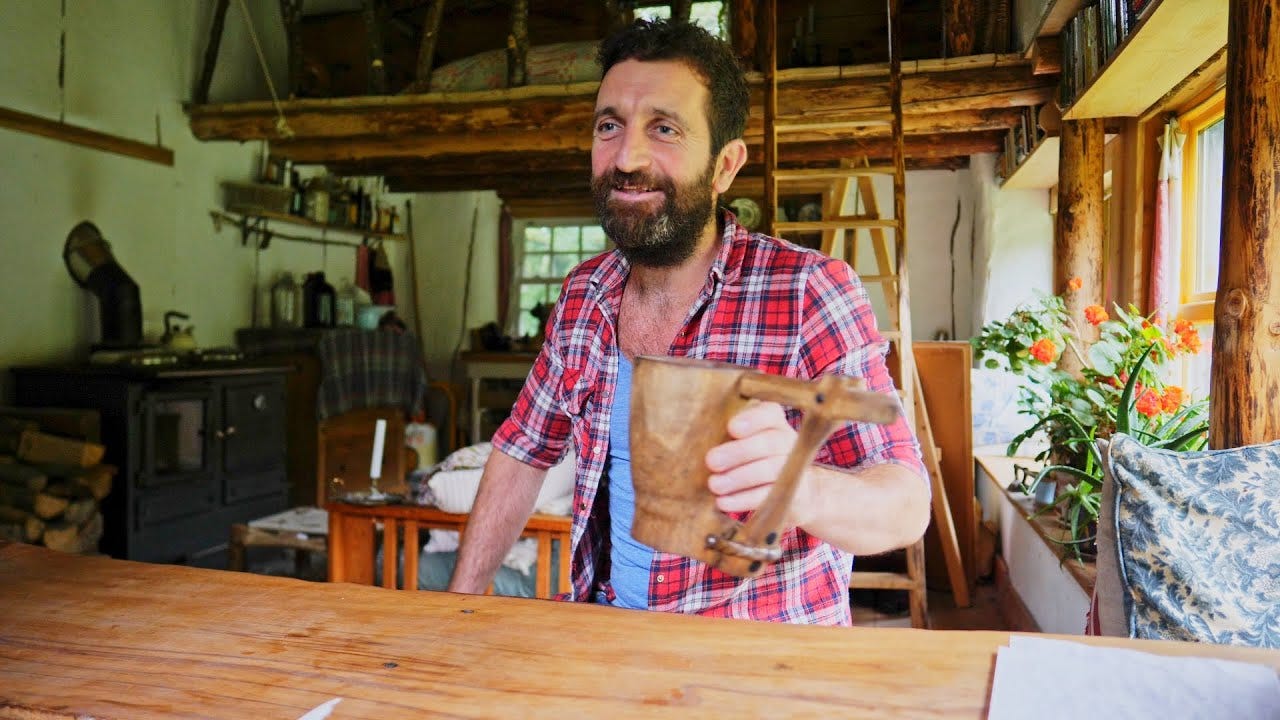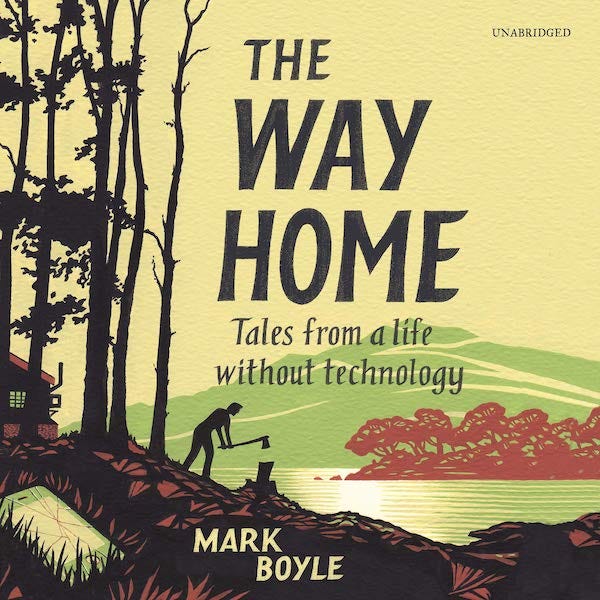Book review: "The Way Home" by Mark Boyle
A beautiful but flawed account of one man's abandonment of all modern technology
Mark Boyle is a primitivist, and his 2019 memoir The Way Home is his story of living as a native circa 2,000 BC (or thereabouts).
He lives in a house he built with his own hands and locally available material; he has no running water or electricity, he grows much of his own food, heats his house by burning wood, and writes in pencil by candlelight (and even agonizes over whether he should give up the pencil).
Boyle’s memoir is both a fascinating case for a life free (or at least, much freer) of technology, and a cutting critique of modern life. His insights are thought-provoking and made me consider what technology makes us miss. Reading Boyle’s book reminded me that technology—specifically, the Internet and social media—often replaces things: time with people, time outdoors, time to think. And that’s just for a start.
That critique isn’t unique, but Boyle’s response is, and his book explores the implications of cutting out certain technologies. He notes that when he abandoned electricity, he lost the ability to listen to music, and it was as if all his favorite musicians died simultaneously. Experiencing first-hand music or creating it himself were the only options left to him. He describes reconnecting with old and even ancient ways of living. Growing his own food reconnected him with his surroundings: the seasons, the animals, and the weather. Throughout the book, Boyle discusses his desire to reconnect with the hunter-gatherer experiences of his ancestors. It is a powerful experiment powerfully written, and Boyle’s book made me want to be far more intentional about the place of technology in my life.
But something bothered me throughout the book that I couldn’t quite put a finger on until later. Reading some of Boyle’s post-publication interviews helped pinpoint it for me. In The Way Home, Boyle explains that because of his apocalyptic view of the world’s future, he has decided he doesn’t want children and that this has cost him relationships. In interviews, he discusses the fact that as a young man, he got a vasectomy to ensure that any sexual relationship he embarks on will remain sterile. And here Boyle’s grand ambitions come crashing down. Not having children due to worries about the future must be one of the most post-modern decisions a man can make. Can you imagine the ancients making such a choice? None of us would exist if our ancestors were so worried about their inevitably collapsing societies that they opted against procreation and self-mutilated to ensure childlessness.
Mark Boyle is seeking ancient ways of living by living alone because, according to his own interviews, he is unwilling to consider having children with the women he falls in love with. His version of the way home is thus in many ways a solitary and profoundly post-modern journey. Boyle has rejected much of modern society, but he is still engaged in a fundamentally masturbatory experiment in self-creation that is closed to new life and cut off from the experiences of every preceding generation. Our ancestors could understand the pain of infertility and they could understand the joy of children. But intentional childlessness? That would be unfathomable to them. Boyle is rejecting the very community structure around which traditional societies were based, and as such his experiment fails on its own terms.
How, after all, can the old ways be passed on if marriage and children are summarily rejected? How can we understand how the old ways were lived if we reject the way our ancestors lived those lives and the people in whom they lived and moved and had their being? The reality is that we can’t, and thus Boyle’s attempts to recapture this life fails based on his inability to break out of his post-modern mindset.
To intentionally live without family (and without faith) is to miss what our ancestors thought of as the very purpose of life to begin with. While Boyle’s book is still a great read, Eric Bende’s 2005 memoir manifesto Better Off: Flipping the Switch on Technology, on how he and his young wife embarked on a very similar experiment, is far more helpful—and gets far closer to the sort of life our ancestors would have recognized and celebrated.



